NEW VISTAS: Deep Space Station 35 will operate for many decades. We can only begin to imagine what future discoveries it might make. Credit: Adam McGrath
It’s been a momentous couple of days in the history of Australian space exploration. Just yesterday, the newest antenna in NASA’s Deep Space Network was officially commissioned at our Canberra Deep Space Communication Complex, five years to the day from its original ground breaking ceremony.
DAY OR NIGHT: Deep Space Station 35 will be operating 24/7 to help make discoveries in deep space.
The new dish, Deep Space Station 35, incorporates the latest in Beam Waveguide technology: increasing its sensitivity and capacity for tracking, commanding and receiving data from spacecraft located billions of kilometres away across the Solar System.
The Canberra Complex is one of three Deep Space Network stations capable of providing two-way radio contact with robotic deep space missions. The Complex’s sister stations are located in California and Spain. Together, the three stations provide around-the-clock contact with over 35 spacecraft exploring the solar system and beyond. You may remember this technology being utilised recently for the Rosetta and Philae comet landing; and for communicating with the ever so far-flung New Horizons spacecraft on its journey past Pluto.
“Does it get Channel Two?”
As a vital communication station for these types of missions, the new antenna will make deep space communication for spacecraft and their Earth-bound support staff even easier.
But don’t put away the space candles just yet. For today marks the 55 anniversary of the signing of the original space communication and tracking agreement signed between Australia and the United States, way back on the 26th February 1960.
It is a partnership that has that has led to many historic firsts and breakthrough discoveries – the first flybys of Mercury and Venus, the vital communication link and television coverage of the first Moonwalk, robotic rover landings on (and amazing views from) the surface of Mars, the first ‘close-ups’ of the giant outer planets and first-time encounters with worlds such as Pluto.
The first ever Moon landing: a momentous occasion, broadcast around the world thanks to the Australian-US partnership.
So, we say welcome to the newest addition to the Deep Space Network and happy birthday to our space-relationship with the US. Here’s to another fifty five years of success!
P.S. We couldn’t finish the blog without including this little gem:
A famous photobomb, taken during the antennae’s construction.

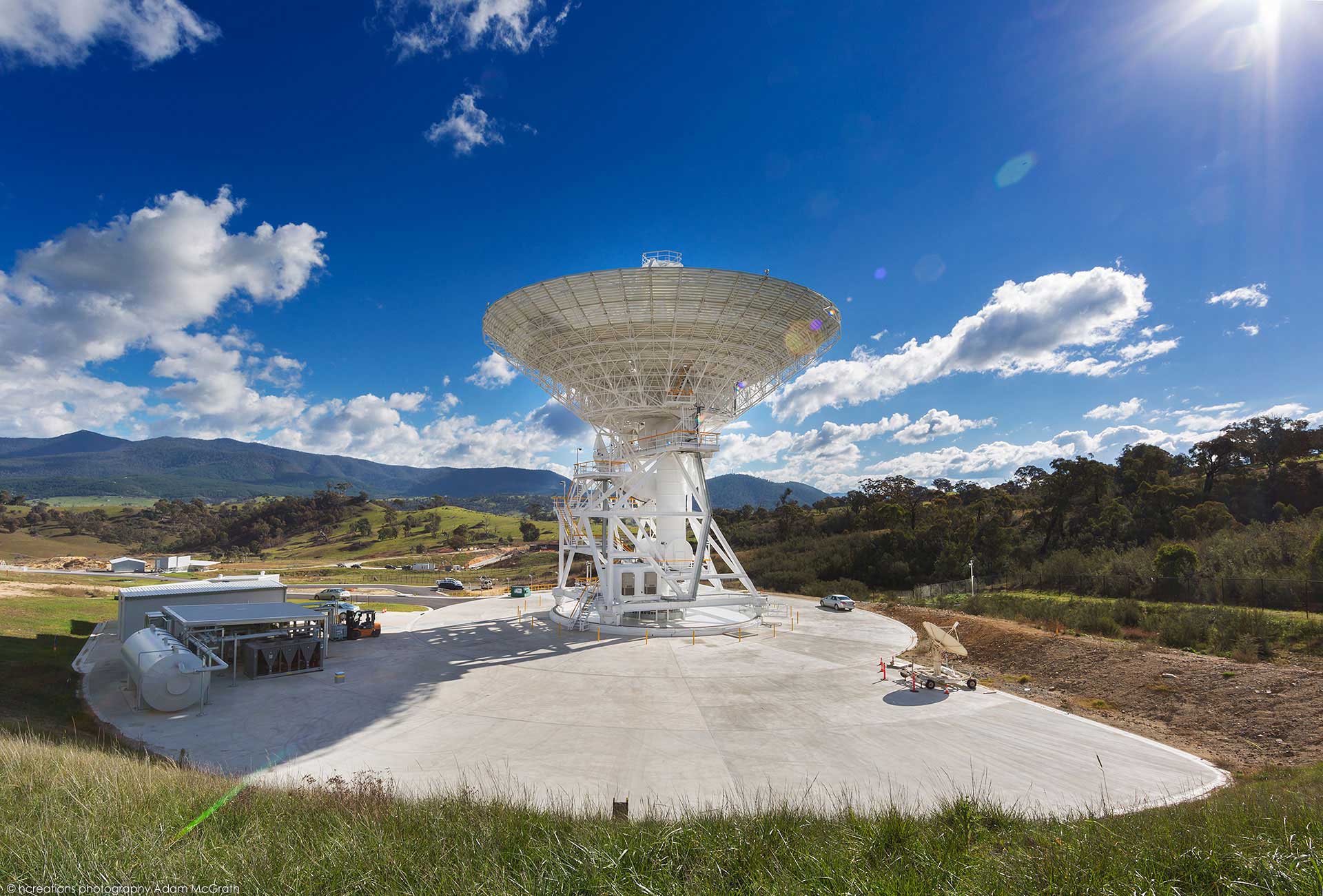
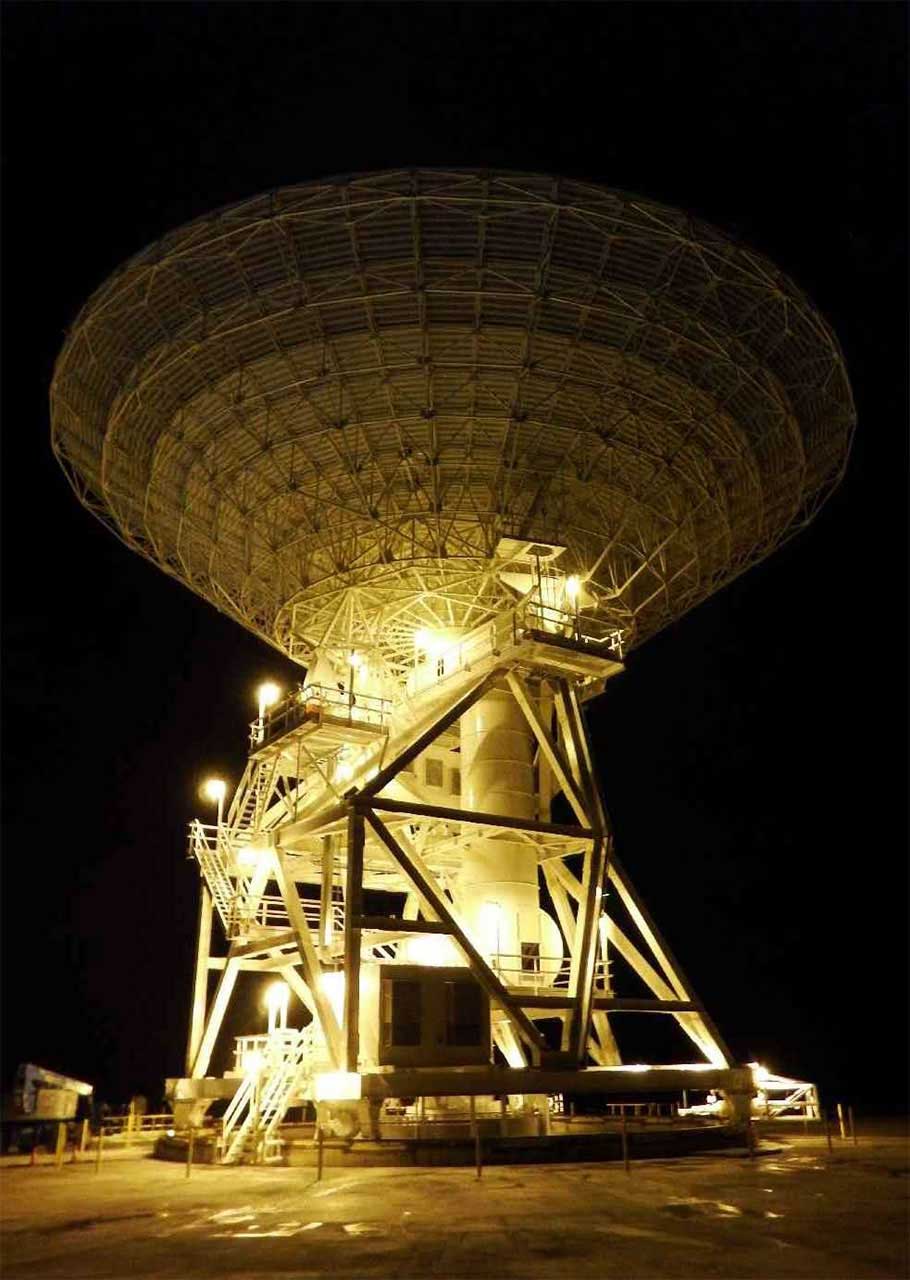
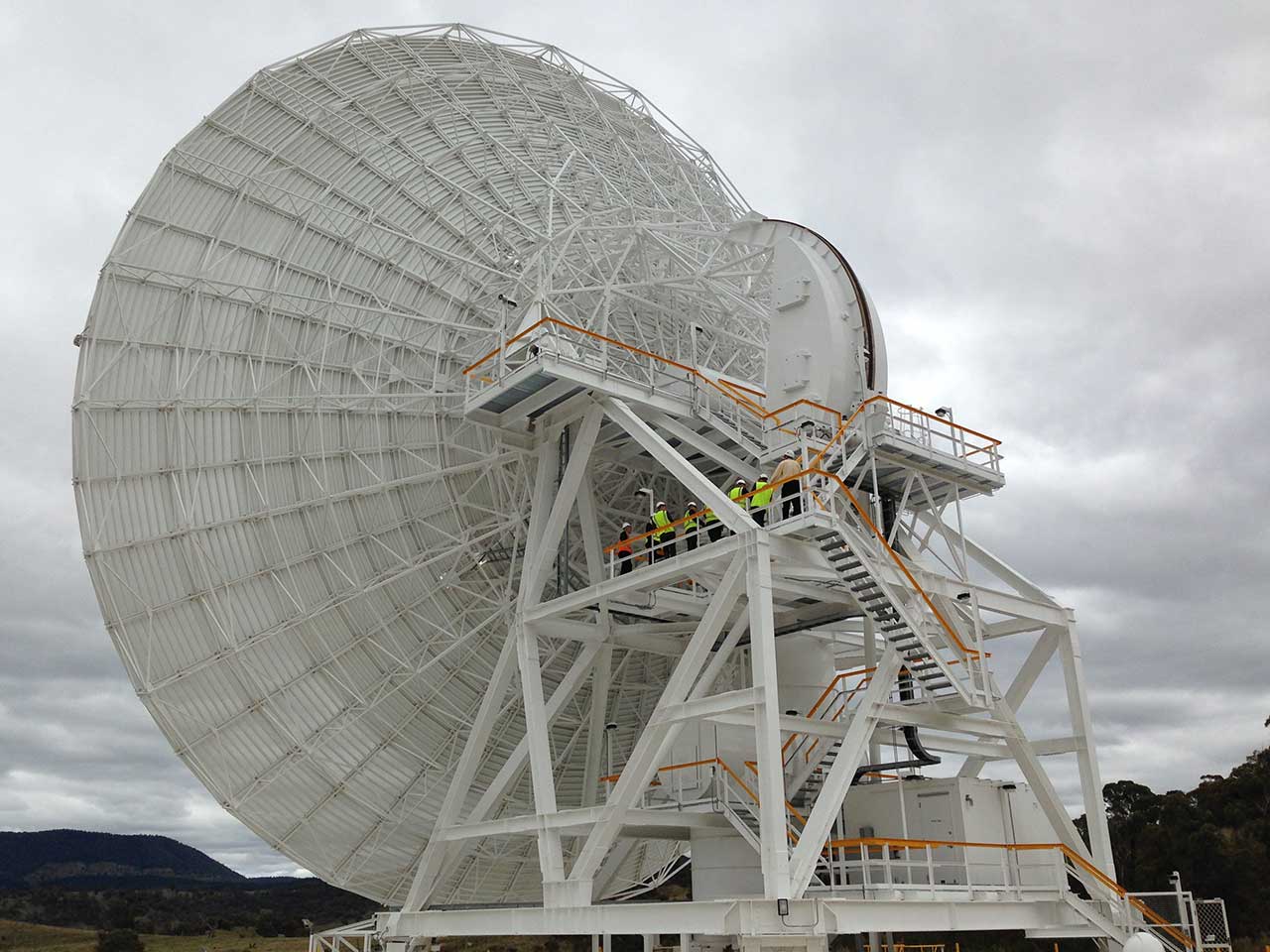
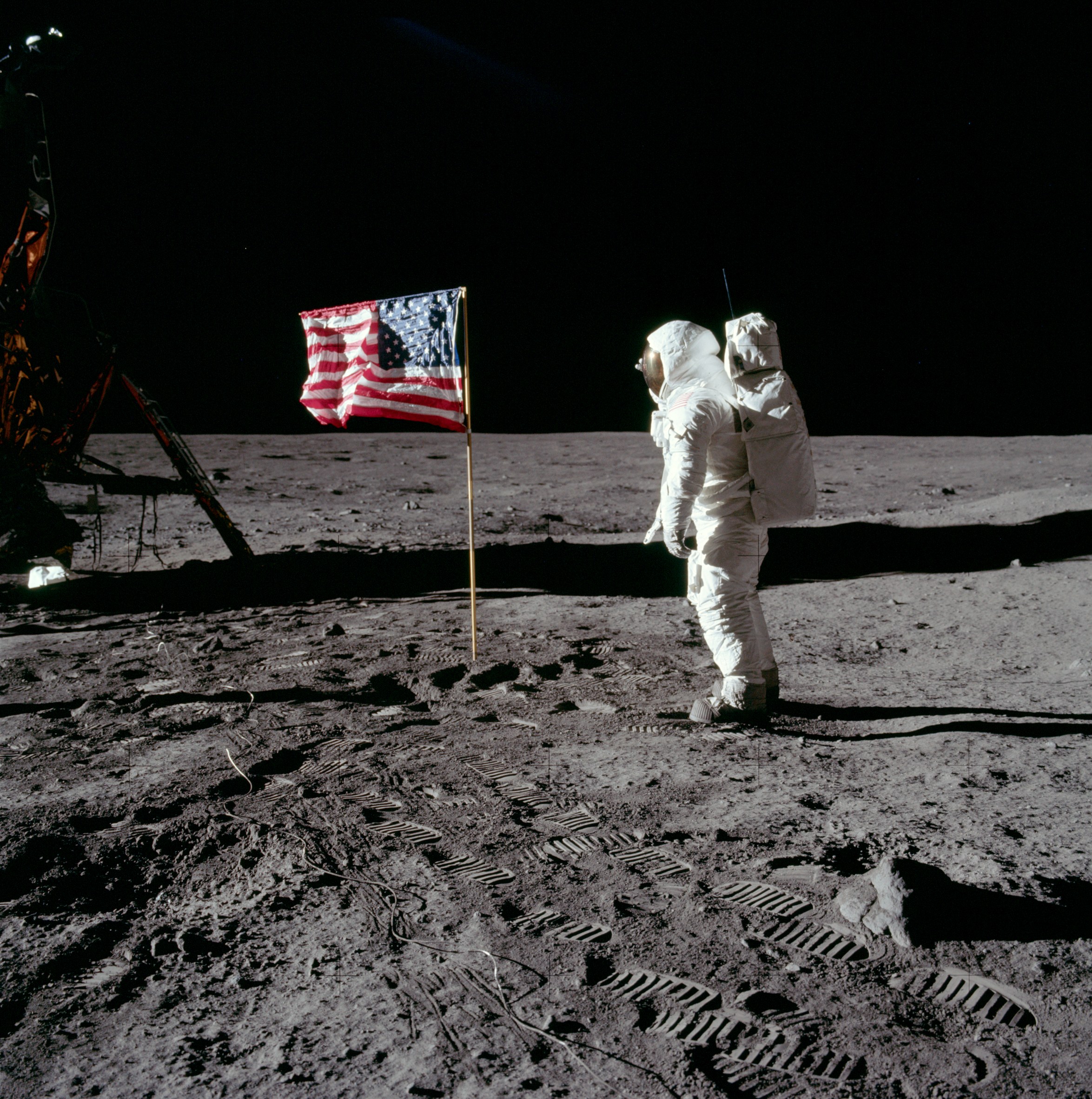
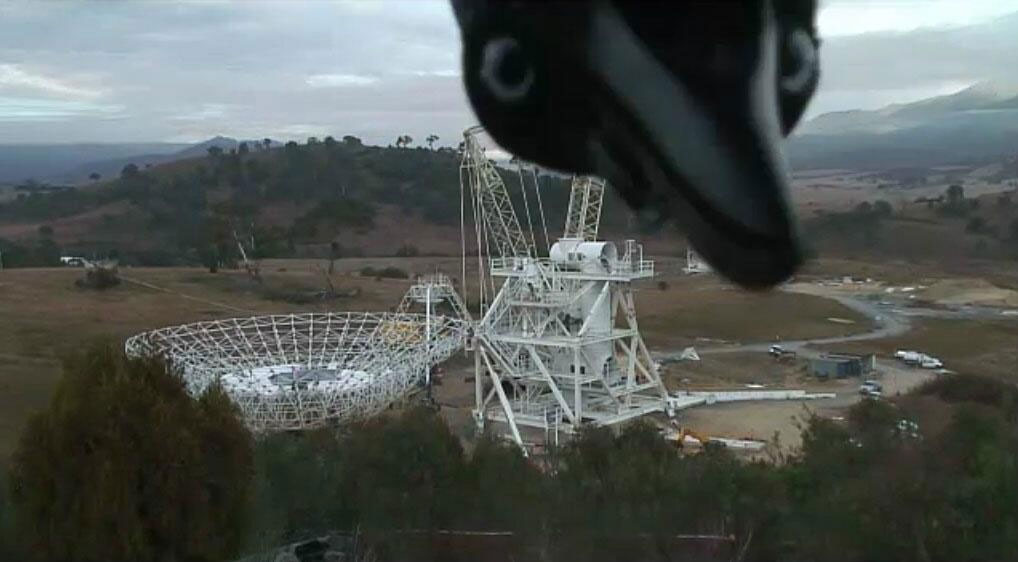

26th March 2015 at 3:27 am
Looking forward to hearing about all the future discoveries the Deep Space Station 35 will make. Thanks for sharing!
27th February 2015 at 11:25 am
I had the opportunity, through my primary school, to visit in 1976 but declined the offer and a classmate went in my place.
26th February 2015 at 7:08 pm
Che impresa affascinante quella di esplorare oltre il nostro sistema solare. Chissà cosa scopriremo in quegli spazi infiniti?